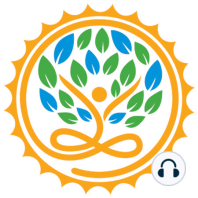40 min listen

Postprandial Fatigue, Part II: Endotoxemia, Inflammation, and Mitochondrial Dysfunction
Postprandial Fatigue, Part II: Endotoxemia, Inflammation, and Mitochondrial Dysfunction
ratings:
Length:
50 minutes
Released:
Aug 21, 2020
Format:
Podcast episode
Description
A few weeks ago NBT Scientific Director Megan Hall and I met up to discuss the causes of postprandial fatigue, commonly known as “food coma”. We talked about two common causes, both associated with glucose dysregulation. Megan described some of the mechanisms causing hypoglycemia, including accelerated gastric emptying, periods of increased insulin sensitivity, and low hormonal states, while hyperglycemia is often associated with insulin resistance. This was such a big topic we only covered about half of it the first time around, so we’re continuing the conversation today. On this podcast, Megan and I discuss three additional causes of postprandial fatigue: endotoxin, inflammation, and mitochondrial dysfunction. Megan describes each of these scenarios in detail, discussing some of the upstream causes that can be targeted early on to avoid problems. She also provides practical steps you can take if you’re one of the millions dozing off after lunch every day. Be sure to follow along with Megan’s outline for this podcast. Here’s the outline of this interview with Megan Hall: [00:01:42] Previous podcast: Postprandial Fatigue: Is It Normal To Need A Nap After Lunch? [00:03:20] Hans Vink; Hyperglycemia reduces glycocalyx volume while NAC infusion prevents the reduction. Nieuwdorp, Max, et al. "Loss of endothelial glycocalyx during acute hyperglycemia coincides with endothelial dysfunction and coagulation activation in vivo." Diabetes 55.2 (2006): 480-486. [00:03:51] Malcolm Kendrick on the glycocalyx; Podcasts: Why Cholesterol Levels Have No Effect on Cardiovascular Disease (And Things to Think about Instead) and A Statin Nation: Damaging Millions in a Brave New Post-health World. [00:04:51] NBT Strength and Conditioning Coach Zach Moore; Podcast: How to Strength Train Without a Gym. [00:06:21] Postprandial endotoxemia (PPE): definition, causes, downstream effects; Study: Kelly, Caleb J., Sean P. Colgan, and Daniel N. Frank. "Of microbes and meals: the health consequences of dietary endotoxemia." Nutrition in Clinical Practice 27.2 (2012): 215-225. [00:11:04] What to do about PPE. [00:11:56] Probiotics; Podcasts: How to Optimise Your Gut Microbiome and Microbiome Myths and Misconceptions, with Lucy Mailing, PhD; How to Use Probiotics to Improve Your Health, with Jason Hawrelak, PhD. [00:12:10] Megasporebiotic; Study: McFarlin, Brian K., et al. "Oral spore-based probiotic supplementation was associated with reduced incidence of post-prandial dietary endotoxin, triglycerides, and disease risk biomarkers." World Journal of Gastrointestinal Pathophysiology 8.3 (2017): 117. [00:12:36] Chris' sister's story. [00:13:51] S. boulardii - may help with gut barrier function; Study: Terciolo, Chloe, Michel Dapoigny, and Frederic Andre. "Beneficial effects of Saccharomyces boulardii CNCM I-745 on clinical disorders associated with intestinal barrier disruption." Clinical and experimental gastroenterology 12 (2019): 67. [00:14:23] Additional supplements that may help with gut: Enteromend, Permaclear, GI Revive, SBI Protect. [00:17:09] Dietary interventions for PPE. [00:17:14] Plant polyphenols; Studies: 1. Wong, Ximena, et al. "Polyphenol extracts interfere with bacterial lipopolysaccharide in vitro and decrease postprandial endotoxemia in human volunteers." Journal of Functional Foods 26 (2016): 406-417; 2. González‐Sarrías, Antonio, et al. "The endotoxemia marker lipopolysaccharide‐binding protein is reduced in overweight‐obese subjects consuming pomegranate extract by modulating the gut microbiota: A randomized clinical trial." Molecular nutrition & food research 62.11 (2018): 1800160; 3. Kolehmainen, Marjukka, et al. "Bilberries reduce low‐grade inflammation in individuals with features of metabolic syndrome." Molecular nutrition & food research 56.10 (2012): 1501-1510. [00:17:36] Sulforaphane; Studies: 1. Yanaka, Akinori, Junya Sato, and Shun Ohmori. "Sulforaphane protects small intestinal mucosa from aspirin/NSAID-induced i
Released:
Aug 21, 2020
Format:
Podcast episode
Titles in the series (100)
Toréa Rodriguez and Hashimoto's: In this episode, Julie and me were lucky enough to be joined by biochemist, Silicon Valley executive, professional pilot and Certified Functional Diagnostic Nutrition practitioner Toréa Rodriguez. We discuss how Hashimoto’s thyroiditis grounded her... by Nourish Balance Thrive